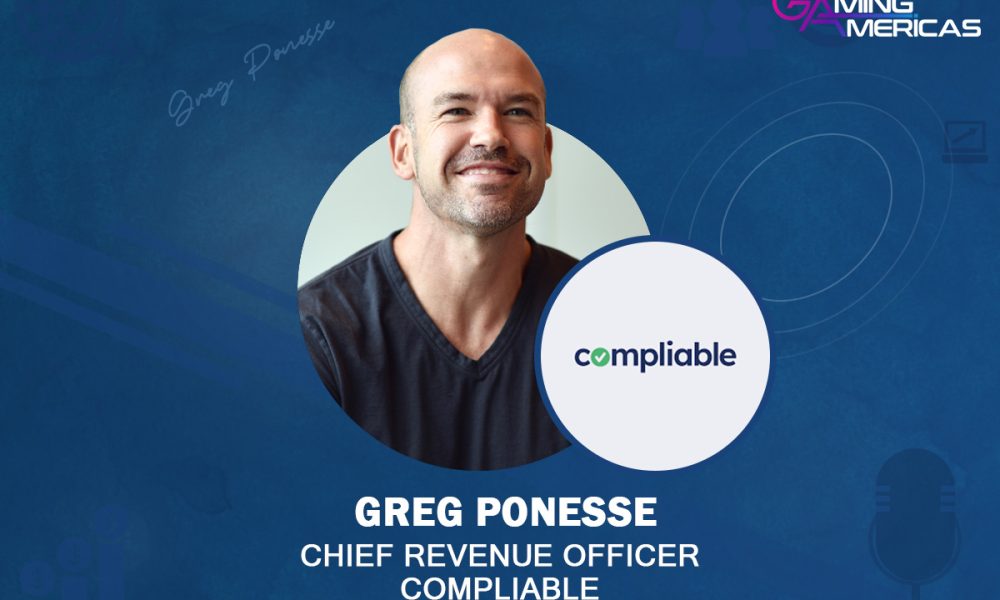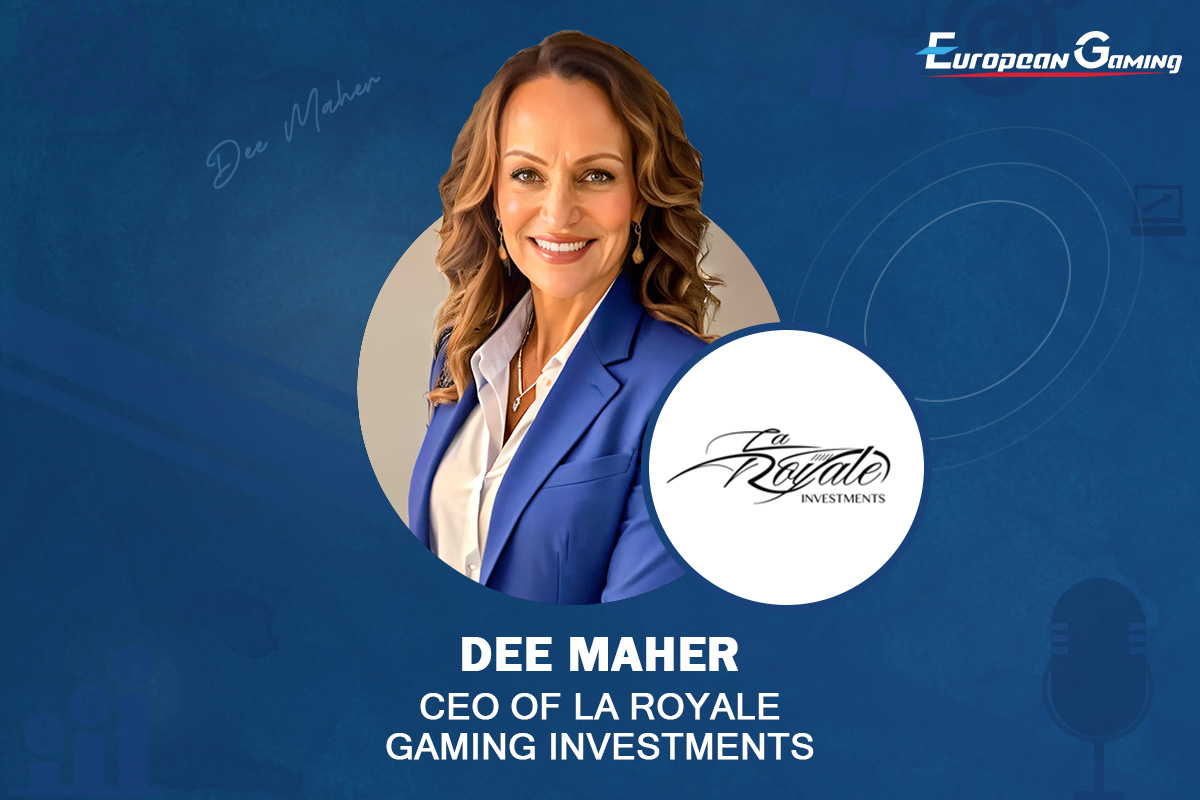Interviews
Mobile-first gaming round table with experts from Habanero, Evoplay, OneTouch and ESA Gaming

In recent years, mobile-first gaming has rapidly risen as smartphone companies continuously enhance their products, making it easier for players to access games whilst on the go. This technological development has brought forward an industry shift, that has seen iGaming companies redirect their focus towards mobile-first content.
With more and more companies embracing the increase in mobile gaming, we explored the success of this new generation offering and what the future holds.
According to you, what brought forward the increase in mobile-first gaming?
Arcangelo Lonoce – Head of Business Development at Habanero:
The watershed moment came a number of years ago when smartphones finally managed to deliver a properly premium gaming experience. Indeed, phones have improved exponentially to the point where you could argue that mobile technology is as good as if not better than desktop.
This has been made possible by the improvements in ‘light betting’, by which I mean data, allowing players to enjoy parallel matches etc. When you can reach that point, laptop gaming becomes obsolete as you can flick through just as seamlessly as on desktop. Just of course like the wider world, when it comes to relaxing on the couch, mobile will always be your primary channel over a laptop – whether that’s shopping, gaming or Instagram.
Of course, with HTML5 becoming ubiquitous and flash disappearing has accelerated the mobile-gaming trend. You can look at emerging markets or countries that never went through the ‘laptop era’, as given the leap in tech developments in the last decade, it means that smartphones are simply more affordable and accessible to players than MacBooks ever will be. Latin America is a great example of this.
Vladimir Malakchi, CCO at Evoplay:
The accelerated growth and penetration of global smartphone usage across every corner of the world is the key driver behind the impressive rise we have seen in smartphone gaming. Data from 2021 reveals that over 6 billion people use mobile phones worldwide, and this number continues to grow, with the 5G standard being one of the catalysts. Emerging markets are catching up fast too – with the majority of regions now greatly investing in the development of mobile technology.
In addition to this, according to our research, three-quarters of gamblers prefer to play on mobile, doing so every 4.2 days on average. Other sources show that in 2020, 50% of the online gambling revenue came from mobile, which isn’t surprising as 75% of traffic belongs to mobile. The numbers clearly don’t lie, and the high demand for mobile gaming is a call to action for suppliers to accept this trend.
Thomas Smallwood, Head of Marketing at ESA Gaming, comments:
A mix of technology and convenience is the short answer. Mobiles now provide a simpler and faster way for players to enjoy their favourite games. It’s fair to say that the trend towards mobile has also probably been accelerated during the pandemic as the move from retail to online has quickened.
Madis Raus – Head of Product at OneTouch:
Obviously, the widespread use of smartphones and availability internet has had a positive effect on mobile-first gaming. These days people use mobile devices to perform certain tasks, their far easier to use and more accessible than laptops and desktops. Additionally, mobile devices allow people to do things whenever and wherever they want, whether they’re commuting or simply passing time.
By making the mobile-gaming experience seamless and engaging at the same time, players will continue using mobile devices for entertainment. This is something which will naturally increase over time, as mobile devices continue advancing and being capable to perform at higher standards.
Are there any verticals that perform better on smartphones? And how can developers improve those verticals that don’t work as efficiently?
Arcangelo Lonoce:
As an expert on slots and table games – I would say table games are inherently easier to develop and render when performing on smartphones compared to slots, but if we look at numbers, slots are dominant, with a market share of around 85% or so, which shows that the player demand this vertical more than any other.
However, looking at table games, there’s a lot to be said about performance. They have excellent stable rates of acquisition and retention – so there is less motivation to tweak a formula that is clearly working. They also have higher average bets, greater lifetime value and from a mathematical and user interface viewpoint, I would certainly rank them up there as one of the best performers.
Given market demand though, we can assume slots will always retain the lion’s share. So how does one improve the vertical? Stories, subject matter and narrative are key, as is the UI, although we mustn’t forget, it all starts with the maths – you need to get that right first, and then you can start talking other improvements.
Vladimir Malakchi:
Actually, all verticals and mechanics perform well on smartphones. However, while creating a product for hand-held devices, there are key principles to follow: easy-to-understand UX, simplicity of a game, uncomplicated graphics, and adaptation to vertical view.
One thing is for sure – it makes no sense for suppliers to choose a specific type of game to develop for smartphones. The fundamental point is to accept that the mobile-first approach is a basic demand for players.
Thomas Smallwood:
I think sports betting is a natural vertical for mobile. With the ability to play high-quality live streams on mobile devices, in-play betting is no longer just for retail or desktop and the fact that bets can be placed anytime, anywhere is a major factor.
The limit in phone storage also means that casino can be trickier on mobile, especially in apps where users often need to download the games they want to play exactly because of this limitation.
These are two factors behind ESA Gaming’s development of ultra-lightweight games for sportsbooks. The EasySwipe suite of games is accessed through a widget we have designed and developed which enables players to seamlessly move between games and sports bets rather than being re-directed to another part of the site or a cumbersome casino page. The sports betting experience is unhindered and conversion to casino games happens at lower cost.
Madis Raus:
Mobile device usage differs slightly from desktop usage, this means that mobile users have different expectations. Since people use mobiles to pass time or when they’re in between things, the attention span of the mobile user is often shorter, these are things to consider when providing content to them.
In my opinion it’s the matter of the speed of games rather than specific verticals, fast games tend to perform better, as the player doesn’t need to wait too long, which is a bonus especially when they’re looking to kill some time.
To improve further, developers need to consider the peculiarities of mobile device usage and think about ways of implementing content that doesn’t depend on usage patterns, making the products more appealing and engaging to players.
What are the difficulties of adopting games to function on smartphones?
Arcangelo Lonoce:
Habanero as a company operates with a mobile-first approach, therefore, we don’t find any real challenge when it comes to rendering games on mobile since our products are designed with smartphones in mind. After all, we disposed of Flash in 2015 and since then we have always developed our games using HTML5.
Vladimir Malakchi:
Adapting a visual component to all models of smartphones, including early versions, isn’t an easy task but is possible thanks to cutting-edge technologies. They allow us to create visually stunning products compatible with most smartphones. The optimisation of UX, UI, resolution and graphics for all platforms is the main priority, as we want to ensure that our players get high-quality content on any device.
Another challenge, which we have also overcome, is the amount of data used by games. Our proprietary game engine Spinential, developed in-house has been a real gamechanger for us, accelerating the loading speed and optimising the storage capacity. This solution has been designed with a purely mobile-first approach in mind, and we’ve really reaped the benefits.
Thomas Smallwood:
The obvious thing is the greatly reduced screen space and the practicality of a hand-held device. Because of this, we have chosen to develop ‘mobile-first games’ and move away from adapting desktop content. This means every aspect of the game is thought out with the mobile user in mind, ideally with the ability to do everything just with a thumb. Of course, the challenge is to make everything on the screen accessible, so it is a constant evolution as the user demands more features.
Madis Raus:
Different game types have different elements, for slots it may be the screen ratio, for example how to make symbols as big as possible and still keep the popular grids. Alternatively for Live games, you need to consider the screen size, ensuring that the player can see what is happening in the stream and whether the cards shown are in sync with what’s being reported etc.
As mentioned above, when adapting games, it’s important to consider the peculiarities of mobile device usage, developers must think about ways they can make games as fast and seamless as possible but at the same time still engaging on a smaller screen.
How fundamental is it for operators and developers to adopt a mobile-first strategy?
Arcangelo Lonoce:
It’s extremely important, otherwise you’re missing out on 80% of the market! There were some suppliers that were very late to the HTML5 adoption, which made it incredibly frustrating for operators – plenty of which I saw first-hand back when I was at BetVictor during the 2010s. To put things into perspective today, you simply cannot launch a game as without considering a mobile-first approach, since you’re forgoing an absolutely huge amount of revenue.
Moreover, mobile gaming allows people to play remotely, therefore players don’t need to depend on a desktop or laptop to participate in their hobby. With mobiles advancing and 5G becoming the norm, we’re now looking at a whole new world of possibilities to enhance mobile-first even more, the ramifications of which will be huge, especially when it comes to content and loading speeds.
Vladimir Malakchi:
Keeping in mind the number of global smartphone users, prioritising mobile devices when creating gaming products is a must. Moreover, it is expected that in a couple of years, this number will grow to seven billion. Currently, the US, China and India lead the list of countries with the highest rate of mobile penetration. However, as the latest data shows, the potential of emerging markets in regard to mobile usage shouldn’t be underestimated. This is a direct sign for suppliers to throw all efforts on products focused on mobile gamblers. The mobile-first approach isn’t just a trend, it is a philosophy, which is getting more and more supporters. There is no better time to embrace mobile-gaming than now.
Thomas Smallwood:
You could argue it is a percentages game. When desktop provided the higher user count it made sense to develop content for desktop. With the advancements in mobile technology, the increased numbers using mobile and the loyalty associated with apps I think a ‘mobile-first’ strategy is key in the growth of any gaming brand.
Madis Raus:
This is very essential, especially when it comes to companies surviving in this extremely volatile industry. Just by looking at how much traffic is already generated from mobile channels, you can see how strong the area is, and there’s nothing that indicates a potential decrease in mobile device usage.
If companies wish to attract modern players, it is really essential to adopt a mobile-first strategy, as modern players will look for a seamless mobile experience, if it isn’t available on your brand then they will simply look elsewhere.
With smartphones continuing to evolve, what does the future hold for mobile-first gaming?
Arcangelo Lonoce:
I would expect mobile-first gaming to be the only way forward – it’s the old debate on how much entertainment is a part of iGaming. Whilst entertaining is a key aspect, you must also keep the experience flawless. Certain things haven’t worked out, 3D gaming for example, as we’ve learnt that people don’t really gamble to get lost into the symbology of the slot – but rather the thrill of the win, which is the entertainment.
So, in my view, mobile gaming will gain an even larger market share than it has now, it could soon become by far the only way of enjoying this experience. Additionally, with new demographics coming online, the future holds lots of opportunities for interaction of everything from social to multiplayer, shared in any possible way. Cross-sell opportunities are also endless, with push notifications and the like, as players can carry their game anywhere they go – whether that’s being entertained at home, when out and about or during the commute.
Vladimir Malakchi:
I am sure that we will see an industry-wide adaptation of gaming content to mobile platforms in the very near future. Once the value of mobile gambling is fully understood, the industry will immediately aim to transform existing and future products.
I believe the iGaming world will continue to develop in this direction as an exponential pace, focusing on innovative technical solutions, mechanics, features and visuals optimised for various mobile platforms, models and markets. The key is to find the balance between the quality of gaming products and their adaptation to mobile – and getting this right is where developers need to be investing their energy.
Thomas Smallwood:
Smartphones will continue to develop but I would place more focus on the changing user demands. New game types, more regional content as well as promotion and gamification features are already driving us to change the titles we design and develop.
We will soon launch new in-game promotional tools for operators as well as new style of games, including bespoke games.
Madis Raus:
I believe that the introduction of 5G will bring a ton of opportunity to the table, as the introduction of 5G will bring forward a range of improvements to speed and accessibility. This may also give developers a bit more freedom when they think about creating games for mobile phones.
With smartphones being so advanced these days, the size of the game doesn’t matter as much as it once did, the quality is now the utmost important factor when it comes to designing new mobile-games. This is the same with live content, with the technological improvements, it’s now easier to provide good quality streams, so now developers need to focus on other elements that will make their game stand out from the competition.
Powered by WPeMatico
Holly Fairweather Head of Account Management at House of Brands provider White Hat Studios
Women in iGaming Interview: White Hat Studios’ Holly Fairweather

Holly Fairweather, Head of Account Management at House of Brands provider White Hat Studios, sits down with Gaming Americas to discuss the growing influence of women in the iGaming industry, and highlights how more can be done to improve the overall gender imbalance
Gaming Americas: Since joining the industry in 2018, have you noticed a change in how women are represented within iGaming companies, as well as general attitudes?
Holly Fairweather (HF): When I reflect on the past six years, it feels great to say I have seen a lot of positive changes in our industry and more importantly, an ever-increasing drive to address gender diversity. There is still work to do, and I am reminded of this attending our industry events, where it’s very evident we still lack female presence in C-level roles and on expert panels. It’s also not hard to see walking around conferences the overall gender imbalance that exists. With that being said, I do feel it’s moving in the right direction and I am regularly inspired by women around me being promoted to senior management roles, providing great mentors and role models. Awareness of gender diversity and celebrating success is continually being pushed via various channels, and for me plays a big part in why we are seeing more women have the confidence to progress in their careers and more women enter the industry. It’s also important to say, and why I think change is happening more, that the want of women to succeed and to increase female presence in our industry, is indeed backed by a strong support network of women supporting women, but also of the men in our industry.
Gaming Americas: How important are groups like Global Gaming Women? What kind of initiatives have they offered to help your own career development?
HF: I’ll be honest, I’m still learning about all that Global Gaming Women offers. Working in the US market I see GGW as a substantial network which offers reams of support from training courses, lean in circles and mentorship and networking events just to name a few. I have taken part in a few of the industry wide networking events, and really enjoyed them, connecting with some amazing people, learning more about the industry. One of my objectives this year is to participate in more events, adding value where I can whether that’s within the GGW network or through other avenues.
Gaming Americas: What more can the industry do to make it more appealing to women and ensure they are better represented within organizations?
HF: It’s got to start within each individual company taking responsibility for equal representation. This is not a tick box exercise to achieve a target on a gender split % by x date but must be about promotions and roles being rewarded to the best candidate for the role, regardless of gender, ethnic background, or sexual orientation. We need to shout about the success stories of DEI within the industry, creating an inclusive work environment will attract not just more women but more candidates overall, increasing the talent pool.
There is also a piece around exposure and shining the light on the fantastic women we have leading the way. Sharing their career paths, the good, and the challenges, to provide relatable examples of success. To make women in gaming not about the stats or portray the headline as a negative but more around showcasing the women that are successful and why, helping more women relate and pursue a similar path if this is what they wish to do.
Gaming Americas: What advice would you give to the next generation of women that are looking to make a breakthrough in the industry?
HF: This is a good one! First and foremost, you lead your own progression. Be proactive in building your network, push yourself out of your comfort zone to attend networking events. Reach out to other women in the industry for support and mentorship. That is on you to drive.
Immerse yourself in a team with values that align with yours, a team that welcomes and promotes diversity of all types and supports and rewards on merit are key.
Build your knowledge, for me knowledge is confidence. Quickly realise it is ok not to know everything, ask the questions and find out. Be solution-oriented, supporting your superiors will get you noticed for going over and above and adding value to your team and company.
I was told ‘people do business with people,’ which I stand by and could not be truer in the igaming industry. Always treat everyone with respect, be kind, be yourself, but don’t forget to back yourself! Relationship building is so key in this industry and has helped me progress to where I am today.
Lastly, take risks. And by this, I mean sometimes you must step out your comfort zone and push yourself to try something different to progress to the next stage. So far, the most pivotable moment in my career and biggest risk I have taken, and I’m sure Andy Whitworth (CEO) and the White Hat Studios (WHS) team won’t mind me saying, was accepting the job at WHS. A brand-new supplier to the US, no content live alongside the fact I had never worked in the US market, so of course there was an element of risk. It was, however, a calculated risk as I was joining a team of experts, senior level management I had worked for previously, in an ever-growing US market. A no brainer now when I look back.
Gaming Americas: From a White Hat Studios perspective, what DEI initiatives does the company put in place?
HF: DEI of all types is something I believe increases the performance of a team, and is something we are extremely passionate about at WHS. As we grow and expand, maintaining a strong culture has never been more important. We recently held a WHS workshop in Prague, with one section of our day spent holistically agreeing and locking down our values as a team, ‘Who we are, what we stand for ‘and ‘treating everyone equally’ is now embedded in our company culture as one of our five core values.
I have been lucky in the fact I have never felt that my gender has held me back in my current role and previous igaming companies. Although I understand this has not been everyone’s experience, I truly believe the more we celebrate success, drive awareness, embed inclusion within our companies, and work together across DEI as a whole, we will continue to see women progress and take on careers in igaming.
Compliable
Reputation matters – the importance of supplier licensing

More and more jurisdictions are introducing licensing for B2B providers in an attempt to boost regulatory oversight and restrict black market activity with Sweden and Denmark recent examples. In this piece, we talk to Greg Ponesse, Chief Revenue Officer at Compliable, about how the increased compliance burden can favour suppliers’ standing in the iGaming ecosystem.
Have you seen a shift in attitudes from suppliers to only provide products in regulated markets?
We have seen that suppliers that have traditionally taken a .com approach are starting to move towards being licensed to secure additional revenue and more customers but also to improve their overall reputation and standing. The perception of brand integrity plays a big part of the decision-making process because some operator partners might be reluctant to work with suppliers if they have a mainly grey-market approach.
In the US, supplier licensing has always been the norm, so where we are seeing attitudes changing is primarily with European suppliers. Although most suppliers might have a few licenses that they need to manage in key markets, they are now better understanding the importance of being seen as fully compliant across the board as regulation changes and operators are looking for trusted partners.
Some of these brands are massive enterprises who are now trying to get a handle on how to manage all their licenses across multiple regions, and we have seen an increased interest in our software to support that.
What has been the driving force for this – regulator pressure or business strategy?
It’s a little bit of both. Regulator pressure is definitely a big one as gambling becomes more ubiquitous and mainstream. It’s the responsibility of the government to provide structure and regulation to ensure safety for consumers and many are starting to realize that suppliers play an equally important role in that as operators. We have recently seen examples of locally licensed suppliers being fined by regulators for offering their products to unlicensed operators, so providers need to be on the ball to ensure their reputation stays intact.
That said, the grey market suppliers up to this point have stayed in grey markets because that’s what was available to them. Now you’re seeing new markets opening up like North America, which has been huge, where all states require suppliers to be licensed. These grey market players that have previously focused on Europe now see that there’s revenue over there to be gained, so they need to pull up their socks and play the game.
As a business strategy, suppliers can only remain in black markets for so long, avoiding paying taxes and declaring revenue. In a competitive marketplace, suppliers can definitely benefit from being more established and having numerous licenses. Operators might be wary to work with companies that don’t take compliance seriously so being able to show that you have X number of licenses and that you have infrastructure in place shows that you’re serious, and that you know what you’re doing. It kind of sets the table for you to have a soft landing and to be able to begin those discussions with potential partners.
A sole focus on regulated markets would suggest a negative impact on profits so what benefits do suppliers see from being licensed?
If the train is only going in one direction, you eventually have to hop on it. Moving away from grey markets will inevitably have a negative impact on profits but you then have to look at where you can find additional revenue. If you are a licensed supplier, it does allow you to work with the big local operators. You have to decide on whether you can make more money as a grey-market supplier or by going into markets being licensed and making the most of what that offers.
Do you expect more jurisdictions will introduce B2B licensing going forward?
Yes, for sure. Gambling is ubiquitous now and governments recognise that it’s a great revenue generator for them and it also helps with ensuring responsible gambling. With licensing, you provide a framework, infrastructure, and environment that is safe, and it ensures that everyone is on a level playing field. That needs to include all different sides of the industry such as operators, suppliers, affiliates etc. If everyone in the ecosystem follows the rules, it will be a better place for all.
What are the big challenges that suppliers face when it comes to licensing in 2024 and beyond?
Your licensing strategy, so basically, where you are going to go get licensed. This process takes time and resources, and you want to make sure you are prepared before you start talking with operators. They will want to know, just like as with any other vendor, if you are licensed as a supplier.
If we use the US as an example, there is no shortage of suppliers that want to partner with the available operators, so you need to know who you want to work with and where, and then you have to make sure you sort those applications properly. That is all about getting the right advice or using software because if you fail the process, you will end up at the back of the queue and your go-to market strategy will be delayed.
What, if any, are the key differences between licensing in the US and regulated markets in Europe and other regions around the world?
For starters, every state in the US acts as if it is its own country and the licensing process is very complex and rigorous. In Europe, it was initially somewhat more relaxed. You got your Malta licence, and that was then good for all countries in Europe. We’re now seeing a bit of backtracking, with more and more countries getting tougher on rules and regulation.
Increased supervision, with regulators having more oversight, means there is no hiding and I think that is what we’re moving towards on a global scale.
I do believe that most suppliers and operators prefer a regulated market because it separates proper companies from the bad ones. If I was a large operator or supplier that invested time and money into licensing and establishing a compliance team, I would feel good about that because there are so many companies that can’t do it. There’s this element of pay to play, so to speak, in order to really maximize your profits in a region.
Interviews
Changing the game for content aggregation

We sit down with Dee Maher, CEO of La Royale Gaming Investments, to learn more about her recent appointment as CEO and how the company is set to challenge the gaming industry’s conventions.
La Royale Gaming Investments has bold plans to become a true power player and redefine industry standards. Through acquisitions and mergers, it intends to build an “ecosystem” of online and offline companies, covering both B2B and B2C. Its first play is Quanta, a unique content aggregation platform designed to leverage a high volume with a focus on delivering unparalleled value at a fair price, aiming to introduce innovative solutions for both operators and suppliers. To learn more about La Royale and its goals for the coming 12 months, we spoke with recently appointed CEO, Dee Maher.
Tell us more about your journey to being appointed as CEO of La Royale Gaming Investments.
I’ve been working in the global online gambling industry for many years now in roles covering legal and compliance leadership. Over the past 15 years, I have had the privilege to work for some of the biggest organisations in the business including the likes of Genesis Global, Betclic, Vera&John and Evolution Gaming. When I was approached about joining La Royale Gaming Investments as CEO, it was an offer that I couldn’t turn down. Recognising the company’s ambition to forge a transformative path in the gaming sector, I was compelled by the vision to lead change and drive innovation. My decision to accept was driven by a profound commitment to spearhead our mission, leveraging the remarkable talents of our team to redefine industry standards and make a lasting impact.
What are your main responsibilities and where are you looking to progress most?
I have been tasked with supervising the expansion of our investment portfolio by recognising opportunities that are aligned with our online and offline strategies. I am also overseeing the day-to-day running of Quanta, our inaugural venture, which stands out in the crowded marketplace as a game aggregation platform like no other. In terms of where we are looking to make the most progress, we plan to curate a unique ecosystem of innovative offline and online gaming companies through strategic mergers and acquisitions which combined will make La Royale Gaming Investments a real tour-de-force in the sector and one of the top tier companies with interests across both B2B and B2C.
How is La Royale Gaming Investments going to disrupt the industry? Is it taking a different approach?
La Royale Gaming Investments is poised to redefine the gaming industry with a strategy rooted in bold vision and innovation. We have built out the best team to deploy these ambitious plans and achieve our strategic goals. We are well-capitalised and have lined up our first run of acquisitions, starting with Quanta. Our approach focuses on identifying USPs within each business we engage, introducing ground-breaking offerings to the market. With Quanta, that is being the first mass-market game aggregation platform, creating value for both operators and suppliers. This is an industry where many follow the same blueprint, but we know that to pull distance from our competitors, we need to do things a little differently.
I think our biggest point of difference is that we are curating an ecosystem of innovative businesses across all areas of gambling and gaming. This includes both online and offline, and both B2B and B2C. There are not many organisations in the industry that are this broad and diverse so again this is an area where we can really stand out.
You mentioned that Quanta is the first mass-market game aggregation platform. What does it offer operators and suppliers and how is it different to other solutions in the market?
Quanta has been developed so that it can handle the largest possible volume of games from a diverse array of providers and seamlessly integrate with a vast network of operators. Due to this volume, we can offer the best commercial deals to both parties. Our scale, in collaboration with leading studios and casinos, positions us as a frontrunner in content distribution. Furthermore, we are committed to achieving certifications across all significant regulated markets. For operators, this means they can quickly and easily add games to their lobbies and for studios, it means access to the widest distribution network and thanks to our minimum reseller fee structure, we make this access available to all providers from the established titans to the rising stars.
But just to be clear, Quanta transcends the ordinary, offering not just a cost-effective solution but a sophisticated high-performance platform. The platform is state of the art, allowing for seamless integrations for both operators and suppliers while ensuring the highest standards of resilience and performance. The concept is simple – high volume, low cost – but the advanced technology and strategic foresight required to realise this vision set us apart from conventional solutions in the market.
Content provision is highly competitive so what makes you confident that Quanta will be heard above the noise being made by other providers and aggregators?
Our mass market approach is unique and is already helping us to stand out and generate significant interest from both studios and operators. In the current challenging economic landscape, efficiency and cost-effectiveness are paramount for all stakeholders. But our advantageous commission structure is not the only way we are helping here. At present, operators often have many integrations with various aggregators and directly with game providers. This is inefficient and expensive. With Quanta, operators can plug into a single platform and access all the content they need for each market they target allowing them to save significant resources or to deploy these resources elsewhere.
On the subject of the current economic climate. Is now a good time to be building a business based around M&A?
That depends on how you are approaching your M&A activity and whether an organisation is taking on debt. Timing can be crucial here – you just have to look at the likes of 888 to see how a change in the direction of the wind can have a brutal impact on the wider organisation. That said, there are always plenty of opportunities to acquire great businesses, technologies, solutions and so on, and part of my remit as CEO is to spot these and if they align with our wider approach, make a move. I think the 12 months ahead will be incredibly exciting when it comes to M&A, with some truly transformational deals taking place – something that La Royale Gaming Investments intends to be a part of.
The post Changing the game for content aggregation appeared first on European Gaming Industry News.
-

 Balkans5 days ago
Balkans5 days agoCT Gaming to Showcase its Latest Products at the Belgrade Future Gaming Exhibition
-

 Australia5 days ago
Australia5 days agoNerida O’Loughlin Reappointed as ACMA Chair
-

 British Columbia Lottery Corporation5 days ago
British Columbia Lottery Corporation5 days agoSCCG Management Signs Contract with British Columbia Lottery Corporation
-

 Asia5 days ago
Asia5 days agoIndonesia Establishes Task Force to Combat Online Gambling
-

 Latest News5 days ago
Latest News5 days agoNetBet Casino Joins Forces with Habanero
-

 Latest News5 days ago
Latest News5 days agoPRAGMATIC PLAY DROPS CANDY BLITZ BOMBS
-

 BiS SiGMA Americas4 days ago
BiS SiGMA Americas4 days agoSportingtech Places New Local Talent Front and Center at BiS SiGMA Americas
-

 Andre Filipe Neves4 days ago
Andre Filipe Neves4 days agoSalsa Technology Hails Hugely Successful BIS SiGMA Americas




















